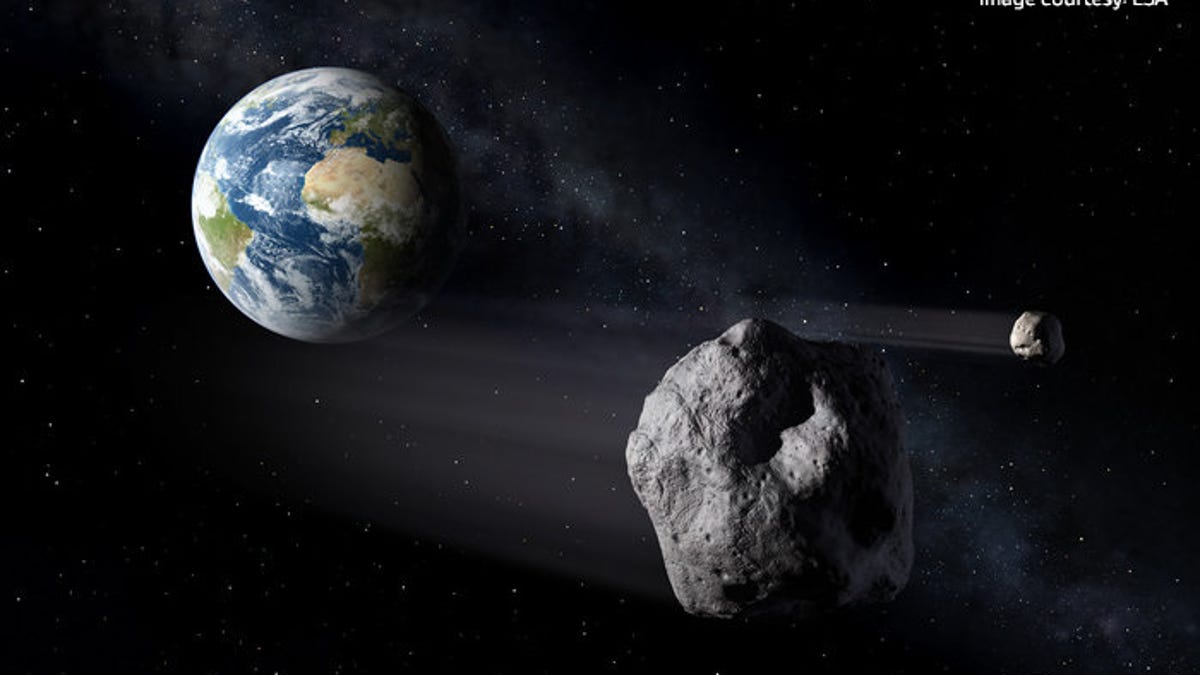FYI, a 'doomsday asteroid' isn't set to wipe us out this month
Conspiracy theories online warn of a catastrophic collision Thursday. While the asteroid exists, there's no hard evidence of a threat, or of the "scientist" sending the warning.

Passing by at a safe distance...
This could be the last story I ever write, if one conspiracy theory circulating online is to be believed.
Late last year word began to spread that a recently spotted large asteroid, 2016 WF9, will smash into Earth as early as Feb. 16, triggering a tsunami or destroying entire cities.
But NASA says the space rock's closest approach to Earth will happen on Feb. 25 at a distance of nearly 32 million miles (51 million kilometers).
"This pass will not bring it particularly close," the space agency said in a statement in late December. "The trajectory of 2016 WF9 is well understood, and the object is not a threat to Earth for the foreseeable future."
Some more dubious corners of the internet, however, insist NASA is lying about the nature of the asteroid and its apocalyptic trajectory. They commonly cite a Russian astronomer, or "Nibiru whistle-blower," named Dyomin Damir Zakharovich who says the government is covering up a larger conspiracy to hide the truth of a hidden planet Nibiru, one of the internet's original fake news stories.
Problem is, there's about as much verifiable evidence that Zakharovich exists as there is for the existence of Nibiru. That is to say, it's restricted to some very sketchy sources. Much of the current chatter about 2016 WF9 that worked its way into mainstream tabloid outlets can be traced back to a site that quotes Zakharovich as claiming the asteroid was actually flung off of Nibiru and predicting it will hit New York state on Thursday.
The same site appears to employ a click-bait strategy of taking whatever news story is dominating headlines at a given moment and connecting it to the Nibiru conspiracy theory.
Also, astronomers aren't known to predict exactly where asteroids or meteors might hit Earth since there's no way to tell how any object might burn up in the atmosphere.
So rest easy and guard yourself against the fake news onslaught, which is far more likely to do real damage to our world than an asteroid this month.
Solving for XX: The industry seeks to overcome outdated ideas about "women in tech."
Crowd Control: A crowdsourced science fiction novel written by CNET readers.

